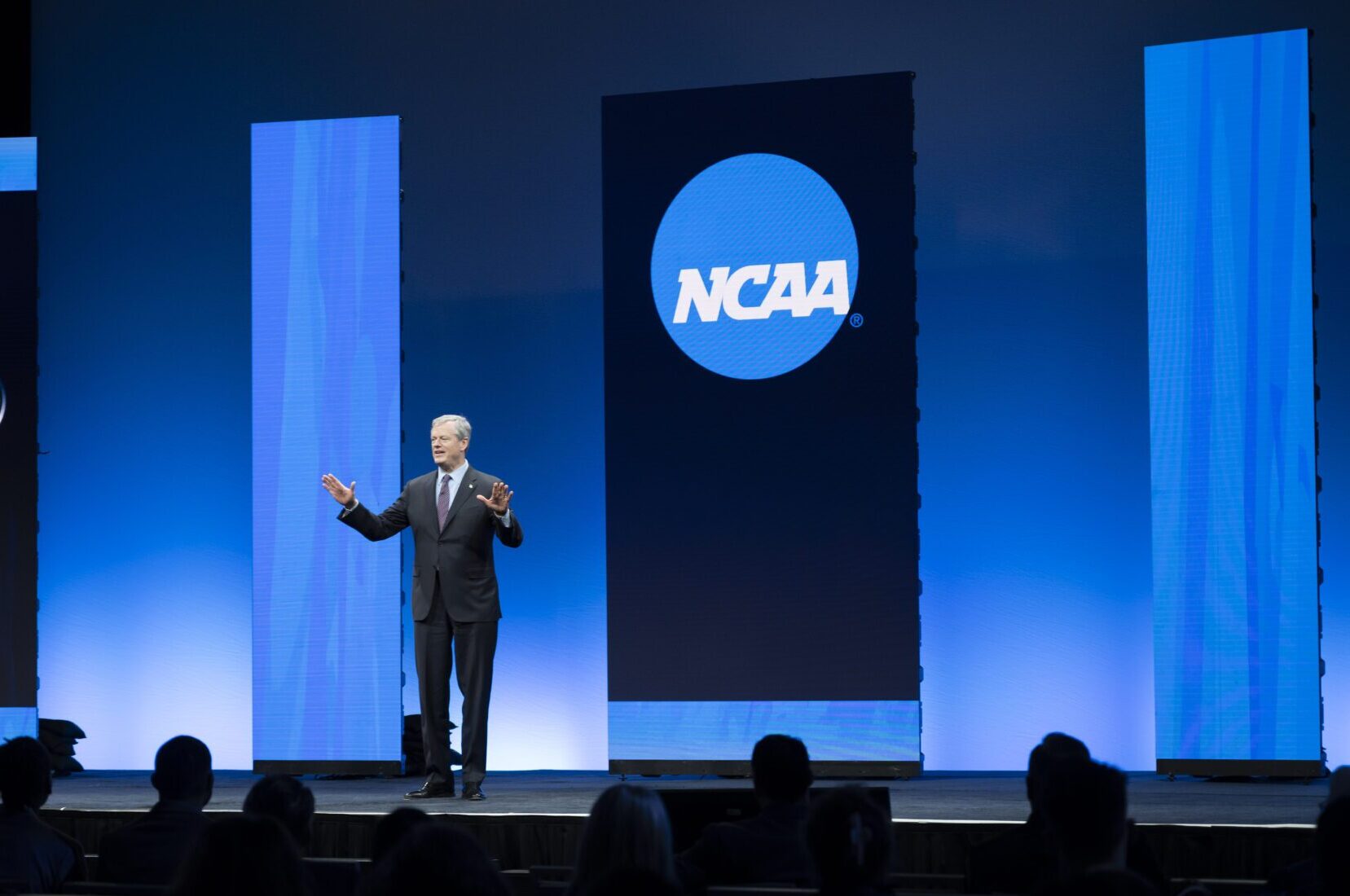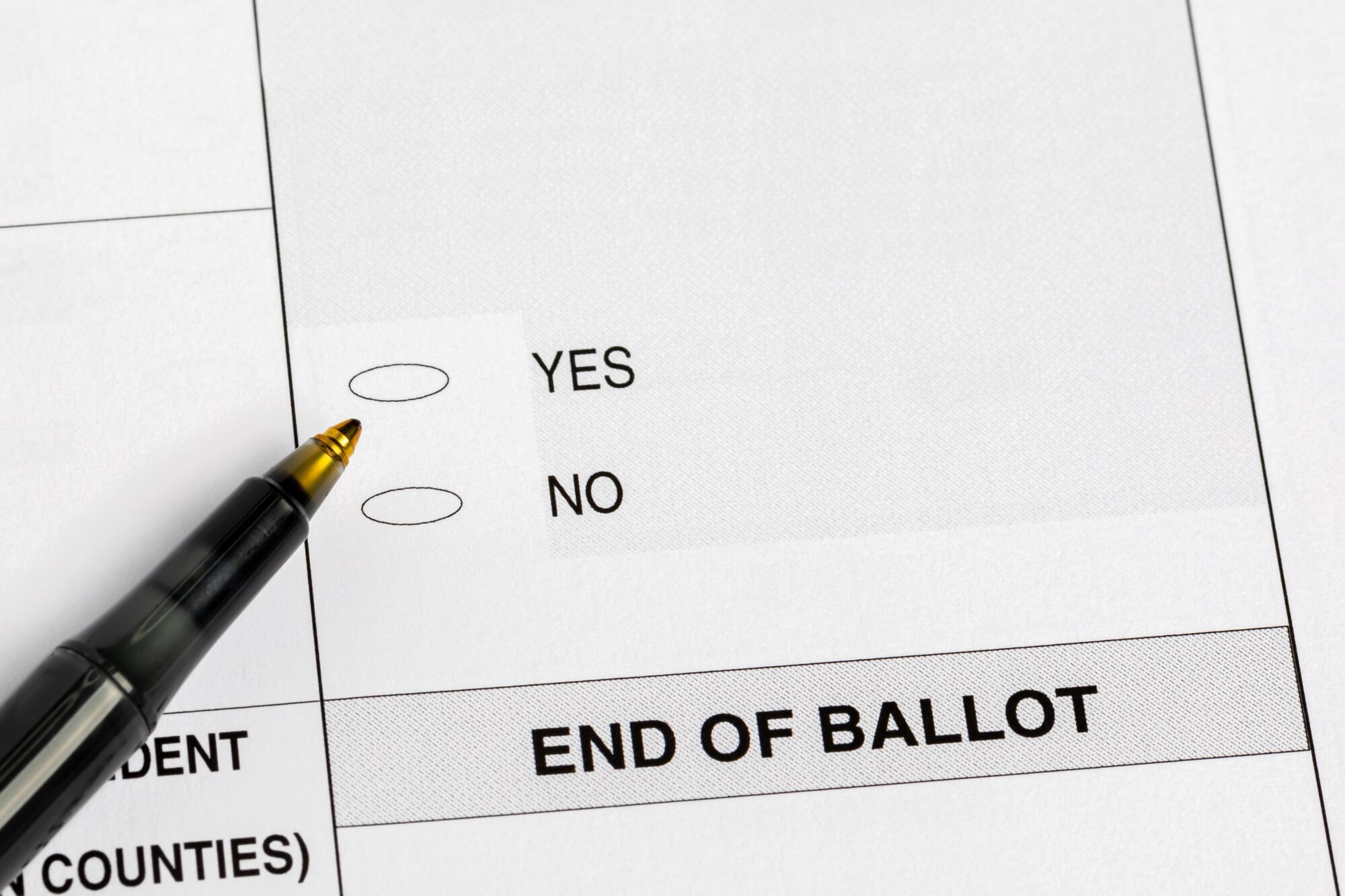
NCAA president Charlie Baker speaks during the NCAA Convention, Thursday, Jan. 12, 2023, in San Antonio. (AP Photo/Darren Abate)
Mississippi is among the states challenging the NCAA’s transfer rule that requires college athletes to sit out a year if they transfer schools a second time.
Sports have the ability to unite even the most entrenched red states and blue states, and perhaps no other organization raises the ire of athletic enthusiasts across the political spectrum more than the NCAA.
Ten states – including Mississippi – along with the District of Columbia are challenging the NCAA’s requirement that college athletes who transfer a second time among Division I schools wait one year before competing in games.
The other states joining in the lawsuit are Colorado, Illinois, Minnesota, North Carolina, New York, Ohio, Tennessee, Virginia, and West Virginia.
Even the Department of Justice has gotten in on the action.
In a rare move, the federal agency signed on to a state-led antitrust lawsuit, saying that the NCAA’s requirement is “an illegal restraint on college athletes’ ability to sell their image and likeness and control their education.”
The NCAA began automatically exempting first-time transfers from the regulation in 2021 but, as the Attorneys General claim, has continued to enforce the rule for subsequent transfers and denied waivers inconsistently and often without legitimate reasons.
According to Mississippi Attorney General Lynn Fitch’s office, Judge John Preston Bailey issued a temporary restraining order in December 2023, later extending it to a preliminary injunction, prohibiting the NCAA from enforcing the rule and allowing college athletes to compete without fear of retaliation from the association.
The preliminary injunction runs through at least the end of the 2023-2024 academic year, ensuring that winter and spring athletes can complete their seasons free from the rule’s restrictions.
Attorney General Fitch said in a statement on Mississippi joining the lawsuit that the NCAA’s Transfer Eligibility Rule unfairly targets and punishes college athletes who pursue education and competitive opportunities at a better matched school.
“Students and their parents should be able to direct their education, and for student athletes, that includes choosing the school that best fits their academic and athletic needs,” Fitch said. “The NCAA’s rule robs students of a significant portion of their college eligibility, hinders the development of their skills, and dramatically impacts their immediate and long-term economic opportunities.”
A trial date in the case has yet to be scheduled.










